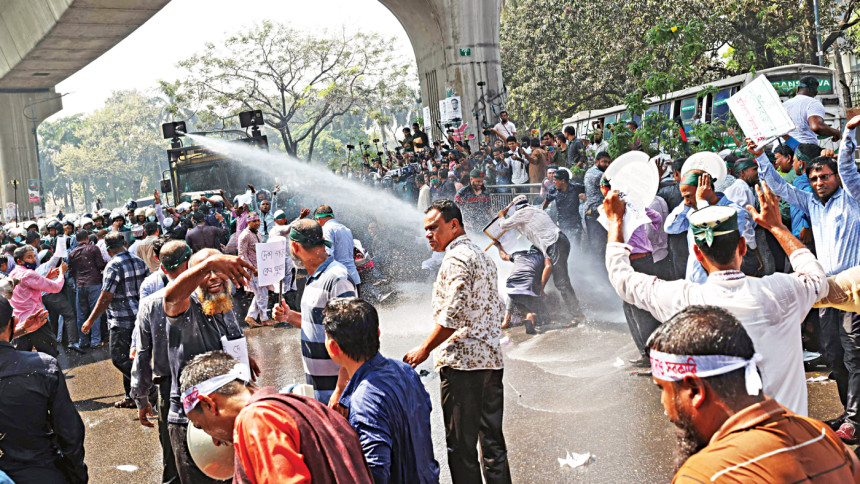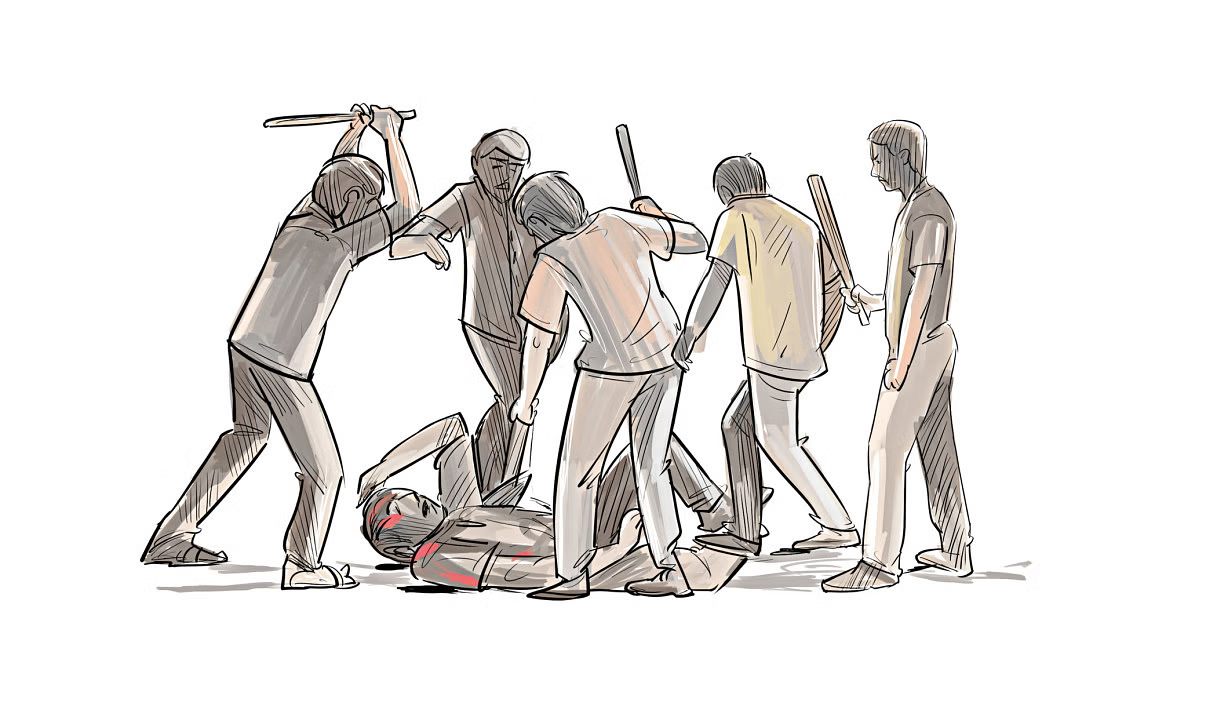The weaponisation of religious sentiments

On June 22, 2025, in Lalmonirhat, a 70-year-old Hindu barber named Paresh Chandra Shil and his son Bishnu Chandra Shil were brutally attacked by a mob following accusations of hurting religious sentiments. The two were beaten in public, reportedly with the involvement of local religious leaders, before being handed over to the police.
This is not an isolated incident. It signals a deeper and more dangerous crisis: the weaponisation of blasphemy laws against minorities. In a country where any perceived insult to the majority religion triggers swift and sometimes violent reactions, mere allegations—without verifiable evidence—often ignite mob justice.
What happened in Lalmonirhat reflects a disturbing pattern across Bangladesh, where accusations of hurting religious sentiments increasingly target, silence, and punish minority communities. These claims rarely lead to proper investigations. Instead, they fuel immediate, extrajudicial violence, with law enforcement agencies often turning a blind eye.
Other tragic incidents have also been triggered by blasphemy allegations over the years. In Ramu, Buddhist temples were torched over a false Facebook post in 2012. In Nasirnagar, Hindu homes and temples were attacked following rumours in 2016. In Lalmonirhat in 2020, a mentally ill man was killed and his body burned based on another unverified claim.
This time, the spark was allegedly a petty personal dispute over Tk 10. Such is the fragile reality: a rumour, a whisper, a grievance can destroy lives.
Blasphemy accusations in Bangladesh have become tools of power, not matters of faith. They settle personal scores, assert communal dominance, or provoke political chaos. For the poor, marginalised, and religious "others," these accusations could be death sentences—no defence, no protection, no voice.
This is not about religion, it's about scapegoating. There are glaring double standards in how religious speech is treated. Minority voices face silencing and attacks over perceived blasphemy, while some majority religious figures freely make derogatory remarks about other faiths, without consequence. The issue isn't blasphemy, it's who is speaking.
In this system, Hindus, Christians, or Buddhists—especially if poor and powerless—remain vulnerable. A rumour can erase decades of coexistence. A lie can destroy a life.
The most haunting aspect is the state's lack of proper action. Politicians issue condemnations. The police arrive too late. Investigations stall. Perpetrators go free.
This failure sends a clear message: in the absence of state protection, sometimes justice can bow to public fury.
Some political actors even benefit from this divide, posing as defenders of the majority faith while quietly enabling violence that consolidates their power. In this environment, defending minorities becomes an act of courage, not a civic duty.
Make no mistake, this is not a religious problem. It is a political and social crisis disguised in religious language. Religion is the excuse, not the cause. It is a mask worn by those who seek to dominate, punish, and terrorise.
Mob violence in the name of religion is fascism. It betrays the principles of justice, mercy, and coexistence upheld by all faiths.
If Bangladesh is to break this cycle, accountability must come first. Mob violence and hate crimes must be prosecuted swiftly and transparently. Accusations of blasphemy should follow due legal process, not public retribution. Law enforcement must be trained to prevent incitement and protect the accused until facts are verified.
There will be no real change without the rule of law. The police, judiciary, and administration must be completely free from political and religious influence and operate independently and impartially. Swift, transparent, and strict legal action is necessary to effectively address religious incitement and mob violence. If perpetrators are not held accountable firmly, such incidents will continue to recur.
The media in Bangladesh is not free from blame either. In many cases, their reporting makes the victims appear as the offenders. Biased reporting misleads the public and deepens social divisions. Such media partiality increases the vulnerability of victims and obstructs the path to justice.
Justice must be blind to religion, wealth, or politics, and it must be swift.
Paresh Chandra Shil was not a threat. He was a fixture of his community, offering shaves and smiles for decades. But one rumour was enough to mark him for violence.
Let us not forget his name or his story. If mobs are allowed to play the roles of judge, jury, and executioner, we abandon justice. And when justice dies, no one—majority or minority—is safe.
It's time to reclaim justice for all Bangladeshis.
Debbrata Kumar Adhikary is development practitioner. He can be reached at adhikarydeb111@gmail.com.
Views expressed in this article are the author's own.
Follow The Daily Star Opinion on Facebook for the latest opinions, commentaries and analyses by experts and professionals. To contribute your article or letter to The Daily Star Opinion, see our guidelines for submission.




 For all latest news, follow The Daily Star's Google News channel.
For all latest news, follow The Daily Star's Google News channel. 

Comments